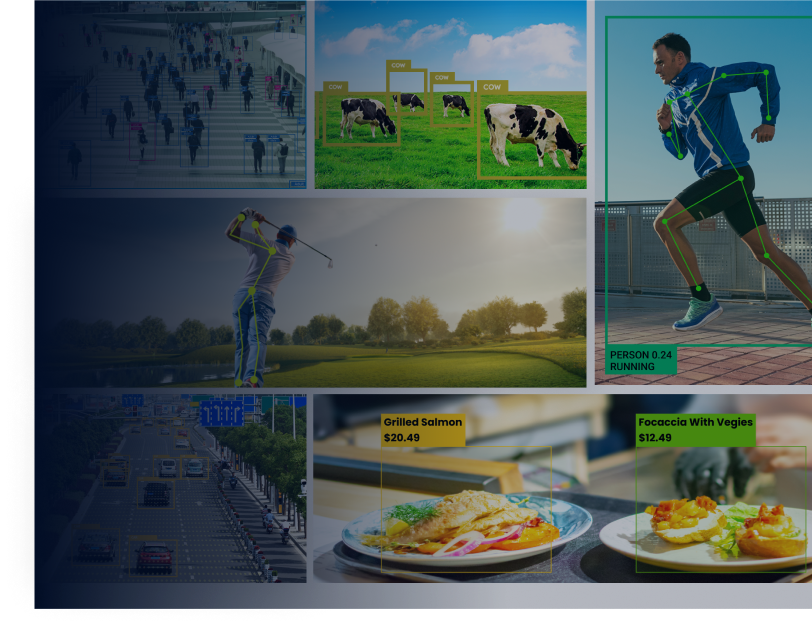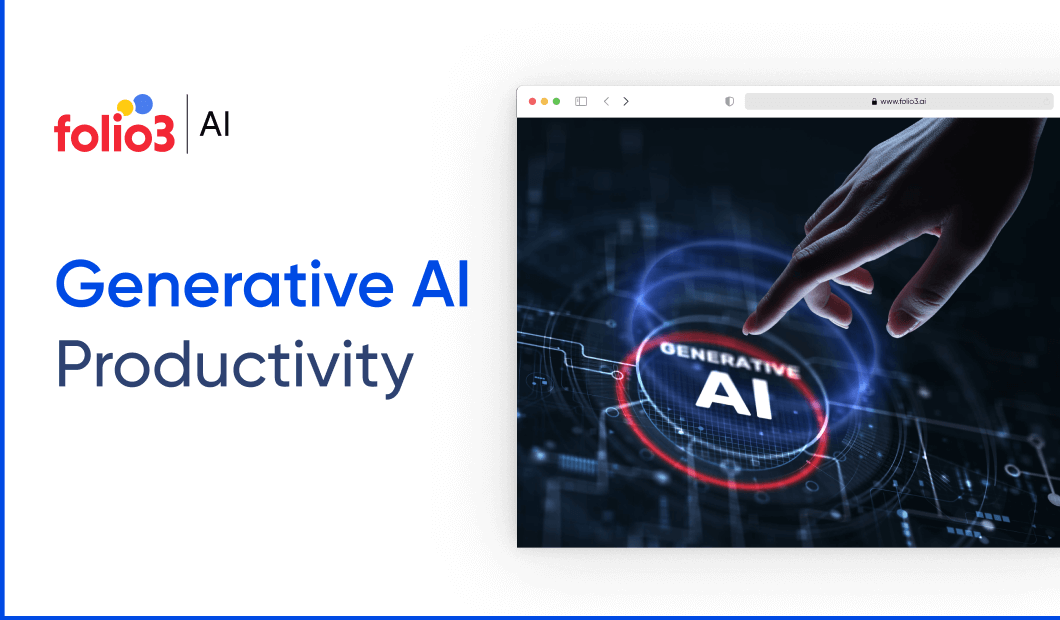Generative AI is not just a tool—it’s a force multiplier, transforming how organizations innovate, operate, and compete in the modern world.
Generative AI productivity is indelible in every organization. I have observed that every employee, from managers to the CEO, doesn’t matter the designation, engineer or a marketer. Dexterously integrates these tools into their workflow.
Generative AI tools such as Claude 3, ChatGPT 4, Google Gemini, Jasper AI, and GitHub Copilot have a salient impact on business operations and daily tasks. If we just look at how generative AI productivity influences the organization. In a marketing department, generative AI can automate the creation of personalized email campaigns, analyzing customer data to craft compelling content faster and more consistently than human writers.
If each employee managed it alone, this task would be labor-intensive, error-prone, and limit the team’s capacity and creativity. Generative AI tools’ broader impact is not just about automation but about fostering a culture of innovation and growth, making them indispensable tools for forward-thinking organizations.
It significantly enhances productivity by automating tasks that consume a substantial portion of employees’ time, potentially saving up to 300 billion work hours annually. From drafting detailed reports to automating data analysis, these GEN-AI tools refine workflows, minimize redundancies, and amplify decision-making speed. Learn more about its benefits, use cases, and challenges.
How Generative AI Enhances Productivity
Generative AI is a step forward in the evolution of artificial intelligence. Cognitive approaches refine how businesses operate. These tools have adaptive learning models that automate complex workflows, streamline knowledge management, and help with intelligent decision-making.
Look at some of the generative AI productivity mentioned below.
Automating Content Creation
Generative AI, powered by Large Language Model Development services, possesses a vast spectrum of knowledge that far surpasses human retention. It assimilates human input and produces high-quality written content, such as articles, blogs, and marketing materials, significantly reducing writers’ time spent drafting.
Natural language processing allows these tools to generate coherent text that meets specific criteria, allowing content creators to focus on refinement and strategy rather than starting from scratch. It’s not just automating content; it orchestrates complex hypotheses, meticulously refining ideas into something far more efficacious.
Code Generation & Software Development
Not just primitive content, generative AI knows intricate and multi-faceted data. It can even construct entire website codes. In software development, AI autonomously generates code snippets, pinpoints debugging solutions, and architects full applications based on user specifications.
This capability speeds up the development process and reduces the likelihood of errors, enabling developers to concentrate on more complex tasks that require human insight and creativity.
Additionally, RAG services (Retrieval-Augmented Generation) are redefining the way AI processes and retrieves information, enhancing the efficiency of AI-generated responses in various applications.
Data Analysis & Decision Making
Data analysis is inherently complex, requiring organizations to engage in iterative discussions, interpret vast datasets, and make high-stakes decisions that directly impact revenue and operations. With generative AI, this process is expedited, AI autonomously synthesizes data, identifies correlations, and delivers precise, actionable insights.
This eliminates the need for exhaustive back-and-forth meetings, allowing businesses to make data-driven decisions with unparalleled speed and accuracy.
Automating Repetitive Tasks
Every day, employees engage in repetitive tasks such as drafting emails, scheduling meetings, generating reports, or managing data entry. AI agent development services manage these processes, making daily operations seamless by automating laborious routines and responsibilities. AI can handle personalized email responses, organize calendars, and summarize lengthy documents.
By offloading these mundane tasks, employees can redirect their focus to higher-value work, fostering efficiency, innovation, and job satisfaction across the organization.
Enhancing Creativity & Brainstorming
There is no doubt that we have many creative AI chatbot development tools that work exceptionally well. From creative thinking and animation to copywriting and beyond, these tools transform simple prompts into stunning images, videos, and text.
Their ability to brainstorm, expand on ideas, and bring concepts to life has shaken the world and redefined business market standards. This unparalleled speed and precision are enhancing workflows and making AI a cornerstone of modern creative processes.
Use Cases of Generative AI in Different Industries
Generative AI tools have profoundly transformative effects on the global workforce. Below are some use cases.
1- Coca-Cola: AI-Powered Content Generation in Marketing
Generative AI productivity has already shaken up the marketing world. It enables hyper-personalized and data-driven content creation at an unprecedented scale. Coca-Cola leverages AI-powered tools to autonomously generate high-impact advertisements, craft persuasive email campaigns, and curate dynamic social media content while maintaining brand voice and engagement precision.
By automating content ideation and execution, Coca-Cola not only accelerates marketing processes. But also maximizes audience engagement, enhances campaign adaptability, and fortifies its competitive edge in the global market.
2- JPMorgan Chase: AI-Driven Financial Analysis and Risk Management
JPMorgan Chase integrates generative AI productivity to refine financial intelligence. They wanted to change the speed and accuracy of risk assessments. AI-driven algorithms autonomously analyze vast datasets, identify intricate market trends, and forecast economic shifts with superior precision.
Also, these AI models detect fraud, reduce risks, and streamline compliance. By automating complex processes, JPMorgan Chase boosts decision-making, strengthens security, and refines its investment strategy.
3- AIGenics & Folio3 AI: AI-Powered Mental Health Chatbot
AiGenics, a UK-based AI healthcare provider, partnered with Folio3 AI to integrate generative AI into its mental health platform. using advanced AI-driven chatbots, Folio3 AI developed a secure and intuitive system that offers digital cognitive-behavioral therapy, self-meditation guidance, and 24/7 mental health support.
The generative AI-powered chatbot personalizes therapy recommendations, tracks emotional patterns, and enhances patient engagement. This collaboration has transformed mental health accessibility, optimized care delivery, and redefined digital wellness solutions.
Challenges & Limitations of Generative AI in Productivity
Even though generative AI amplifies productivity by automating time-intensive tasks and reclaiming up to 300 billion work hours annually, it still contends with intrinsic challenges. And demand rigorous human oversight to uphold reliability, contextual intelligence, and ethical integrity.
Quality Control & Accuracy Issues
Generative AI models can produce misleading or factually incorrect content, often referred to as “hallucinations.” These inaccuracies can compromise business decisions, misinform users, or create errors in automated workflows. Regular validation and human intervention are crucial to maintaining quality and reliability.
Security & Privacy Concerns
AI systems process vast amounts of sensitive data, raising significant security and privacy concerns. Organizations risk breaches, unauthorized access, and potential misuse of confidential information without robust encryption and compliance with data protection regulations. Businesses must implement stringent security measures to safeguard data integrity.
Job Displacement & Workforce Adaptation
Automating repetitive tasks raises concerns about job displacement, particularly in roles heavily reliant on manual or cognitive labor. While AI enhances efficiency, companies must focus on workforce adaptation through reskilling and upskilling programs to ensure employees transition into more strategic and creative roles rather than being replaced.
Ethical Considerations
Bias in AI training data can lead to unfair or discriminatory outcomes, impacting hiring decisions, content generation, and customer interactions. Ethical AI deployment requires transparency, unbiased data collection, and regulatory compliance to ensure responsible AI adoption without reinforcing societal inequalities.
FAQs
Can generative AI boost productivity?
Yes, generative AI automates tasks, saving time and letting employees focus on strategic work.
What is the productivity potential of GenAI?
Generative AI can save up to 300 billion work hours annually, making business operations faster and more efficient.
Final words
The influence of generative AI services extends far beyond this article, automating complex tasks, enhancing productivity, and creating new opportunities across industries. Companies are adopting generative AI for applications such as content marketing, product design, and customer support, allowing for more personalized and efficient client interactions.
Also, this technology is enabling businesses to innovate faster by generating prototypes, summarizing large datasets, and even aiding in decision-making processes. As organizations continue to adopt generative AI, its impact is likely to grow, reshaping business models and fostering new avenues for revenue generation.

Areeb is a versatile machine learning engineer with a focus on computer vision and auto-generative models. He excels in custom model training, crafting innovative solutions to meet specific client needs. Known for his technical brilliance and forward-thinking approach, Areeb constantly pushes the boundaries of AI by incorporating cutting-edge research into practical applications, making him a respected developer in folio3.









